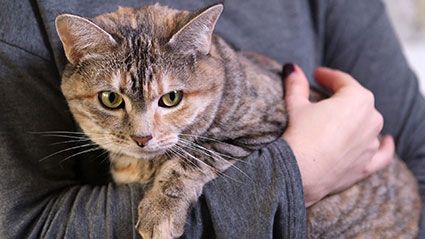
Cats who became infected with COVID-19 had the same variants as their owners throughout the different phases of the pandemic, new research finds.
Scientists looked at retrospective samples to assess COVID-19 infections in U.K. cats from April 2020 to February 2022. The cats had been infected with the Alpha and Delta variants following their emergence in the human population.
“Our findings suggest that there has been continued human-to-cat transmissions of SARS-CoV-2,” said lead study author Grace Tyson, a PhD student at MRC-University of Glasgow Center for Virus Research, in Scotland.
“Therefore, it is important that we continue to monitor SARS-CoV-2 infections in pet cats that are in close contact with their COVID-19-positive owners, as it will be important to monitor changes in transmissibility of emerging variants in cats as well as humans,” she said in a university news release.
The researchers also found patterns of immunity to different variants in these felines that reflected the human pandemic. This indicated ongoing human-to-cat transmission.
However, they did not determine whether the different variants were more or less likely to be transmitted from humans to cats. They also don’t know whether infected cats are more or less likely to develop clinical signs of infection.
The data came from blood samples from more than 2,300 cats that were submitted to a veterinary diagnostic laboratory. Samples came from 112 of the 126 U.K. postcode areas.
“We are continuing to monitor cats for evidence of infection with currently circulating variants,” said Margaret Hosie, a professor of comparative virology at the university.
“Currently, our recommendation is that if cats regularly go outside, then they should still be allowed outdoor access if their owners have COVID-19. This decreases the risk of the cats becoming infected from their owners,” Hosie said.
According to the World Organization for Animal Health, 31 animal species have been infected with COVID-19 so far.
“Since human-to-cat transmission of SARS-CoV-2 occurs relatively frequently in COVID-19-positive households, the results of this study demonstrate the importance of monitoring coronavirus infections in pet cats that are in close contact with their positive owners,” Hosie said.
The findings were published in the June issue of Emerging Infectious Diseases.
More information
The U.S. Centers for Disease Control and Prevention has more on COVID-19 and animals.
SOURCE: University of Glasgow, news release, May 10, 2023
Source: HealthDay

Leave a Reply